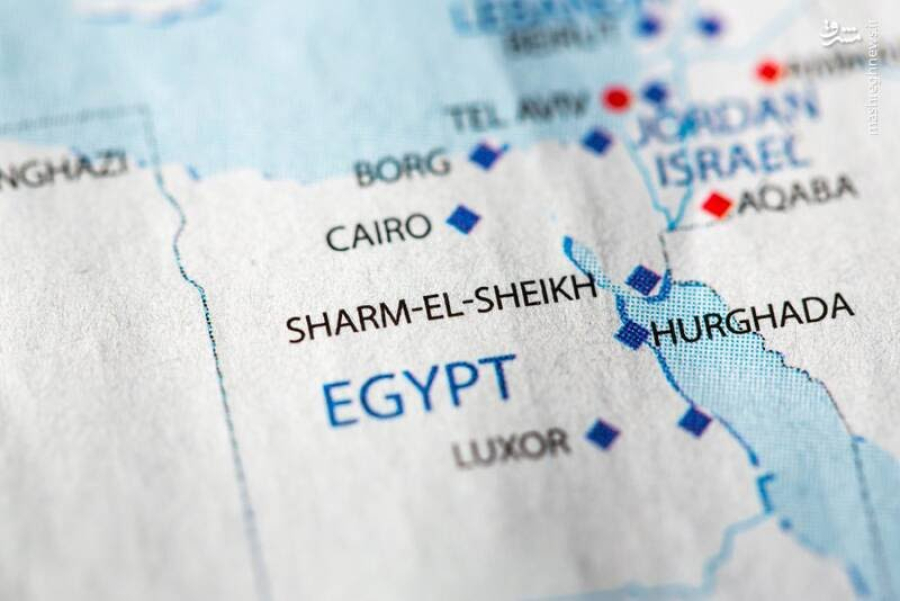Iran’s Foreign Ministry said in a statement: “Iran is grateful for President al-Sisi’s invitation to attend the Sharm el-Sheikh summit. Despite our desire for diplomatic engagement, neither President Mecidian nor I can engage with those who have attacked the Iranian people and continue to threaten and sanction us. However, Iran welcomes any initiative that ends the Israeli genocide in Gaza and leads to the expulsion of the occupying forces.”
The statement emphasizes: “The Palestinians have every right to achieve their fundamental right to self-determination, and all countries have a duty, more than ever, to assist them in supporting this legitimate and legitimate demand. Iran has always been and will continue to be a key force for peace in the region. Unlike the genocidal Israeli regime, Iran does not seek endless wars, especially at the expense of its alleged allies, but rather seeks lasting peace, prosperity, and cooperation.”
Where is Sharm el-Sheikh?
Sharm El Sheikh is a prominent coastal and tourist city in Egypt, known as one of the main recreational centers on the Red Sea. Sharm El Sheikh also hosts an international airport and commercial and military ports, which play an important role in the local economy. Sharm El Sheikh is located at the southernmost point of the Sinai Peninsula in Egypt, overlooking the peninsula's southeastern coast. The city is surrounded by the Gulf of Aqaba and the Strait of Tiran, which makes it a key strategic point in the Red Sea. The Strait of Tiran is a vital route for international shipping, and the Gulf of Aqaba borders Egypt, Israel, Jordan, and Saudi Arabia.
The history of Sharm El Sheikh is intertwined with the political and military developments of the region. Originally a small fishing village, the area grew in strategic importance in the 20th century, especially during World War II, when the British used it as a naval base. In the Suez Crisis of 1956, Sharm el-Sheikh was occupied by the Zionist regime and returned to Egypt after about a year in March 1957. Then, in the Six-Day War of 1967, it was reoccupied by Israel and developed as the settlement of Ofira and an air base until 1982. Under the Camp David Accords of 1979, Israel committed to returning the occupied territories, a process that was completed in April 1982. After that, Sharm el-Sheikh quickly became a tourist and diplomatic center.
Why didn’t Iran participate?
But Iran’s absence from the summit has created significant challenges on social media. Many analysts, regardless of the recent US actions in the field and diplomacy, claimed that this would be a golden opportunity for the Islamic Republic of Iran to play a role in the region and the world. But it was in the midst of these views gaining strength that it became clear that Netanyahu had canceled his trip to Egypt under the pretext of holding a celebration. This is despite claims on social media that Israeli representatives were not invited to the summit and that it was a good opportunity for Iran to attend.
Israel Hume claimed: “Netanyahu canceled his trip to the Sharm el-Sheikh summit not because of ‘holidays’ or ‘pressure from Orthodox Jews’, but because of opposition from Turkish President Recep Tayyip Erdogan. Sources say that Erdogan called Egyptian President Abdel Fattah al-Sisi mid-flight and warned that “if Netanyahu was present at the meeting, his plane would not land.” Turkish officials also informed the United States that they were “angry that this matter had not been coordinated with them.” After consultations between American and Israeli officials, Netanyahu canceled his trip and Erdogan’s plane landed.”
One of the points made by analysts opposing Iran’s presence was that the Sharm el-Sheikh meeting was convened at the initiative of US President Donald Trump and that representatives of his preferred and allied countries would attend. Trump views the Palestinian issue from a specific perspective that is close to the views of the occupying regime in Jerusalem, and within this framework, one cannot hope that the well-being of the Palestinian people will be ensured. On the other hand, when Iran does not accept Western views on the Palestinian issue, there is no reason for it to want to participate in a meeting that promotes these views on the Palestinian issue or to turn itself into a lever in the form of Western policies on the Palestinian issue.
Another point was that the Sharm el-Sheikh meeting did not include real representatives of the Palestinian people. This is while Iran has repeatedly emphasized that the Palestinian community must witness the presence of its real representatives in international forums. Representatives who comprehensively and genuinely support and protect the rights of the Palestinian people.
Cyberspace users also showed many reactions to this issue and emphasized that in the last three months, especially after the start of the Gaza war, Trump has repeatedly spoken proudly of bombing nuclear facilities and assassinating General Rashid Islam, Hajj Qassem Soleimani. In their belief, in addition to these statements, the practical policies of the US government also reflect the same hostile approach; Because Washington has not only increased economic pressure on Iran, but also, along with European countries, has intensified anti-Iranian sanctions. In the eyes of these critics, such behavior does not indicate any change in US diplomacy and bullying policies.


















